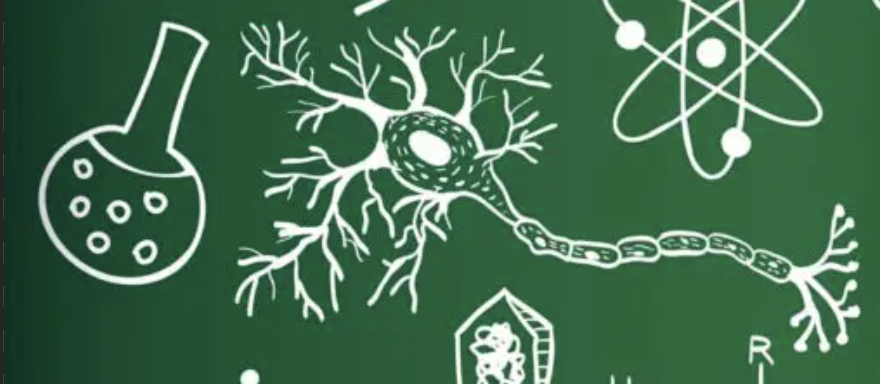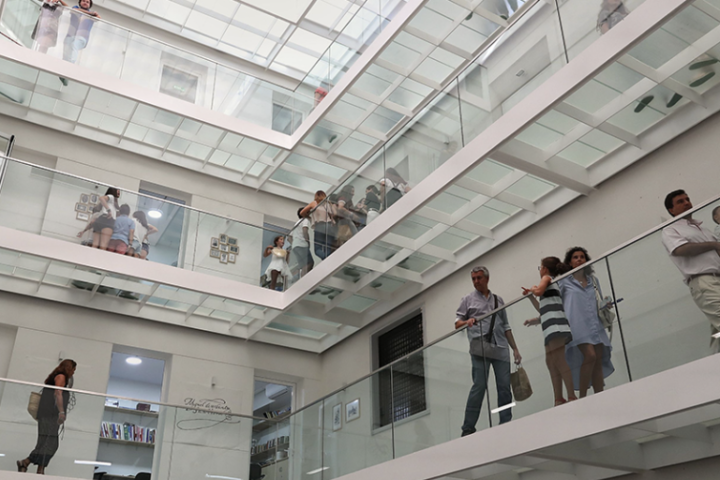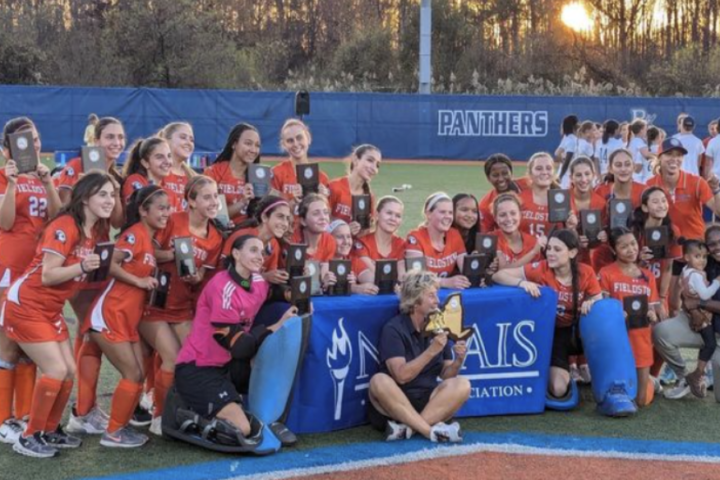We have already made it to February 2023, and it feels like winter break was ages ago. Finals are done and for students at Fieldston, this means a clean slate. Grades were returned to students last week. Now, what’s past is in the past. We’ve reached a new semester.
For all students at Fieldston, the second semester is a chance to improve upon their work during the first half of the year. For underclassmen, it means building on topics that they’ve been working on in class for a few months. For upperclassmen, however, it’s potentially the start of something completely different. Fieldston allows juniors and seniors to truly transform their school life with new classmates, teachers and topics during their second semester. That’s the beauty of electives.
The elective system at Fieldston works for almost every subject, from English to history to ethics, but it works particularly well for Fieldston’s science curriculum. Science, in general, is a broad subject. Beyond the base topics like biology, chemistry and physics, there are dozens of other fields to explore and thousands of subtopics within these fields. The endless number of different paths you can take within science makes choosing just one when you’re in high school nearly impossible. Science electives at Fieldston help students with that selection process, especially students who currently don’t know which of the thousands of routes they wish to take.
When asked what makes science electives at Fieldston special, the Chair of the Science Department at Fieldston, Dr. Church, said, “There is a perfect path for everyone. You can explore anything from food science to neuroscience with Fieldston’s science electives. It doesn’t matter what drives you to be a scientific person. One of these classes will fit you perfectly and drive you where you want to go.”
So, how do the science electives at Fieldston work? What is being offered to students this semester? Fieldston’s science electives work similarly to its English and history electives. Fieldston runs a two-year cycle that rotates the electives taught so that all students can take whichever ones they want. This semester’s electives are Human Physiology, the Science of Climate Change, Ethical Issues in Science, and Pharmacology and Drug Discovery. Next fall, students will be able to take different ones, including Animal Behavior, Neuroscience, Evolution and more.
This semester’s classes provide a wide range of topics that can appeal to students from all angles. Human Physiology is very much to do with all things biology. It’s a class where you can learn all about the human body and its immune, cardiovascular, nervous and reproductive systems. Human Physiology teaches how a healthy body is maintained and how an unhealthy body responds to sickness and disease. Compared to that, the Science of Climate Change is more involved in chemistry and helps students learn about the planet and how we can keep it safe. It teaches students how to analyze climate and weather data and discern climate disinformation in the media. Ethical Issues in Science is the third class offered this semester. It teaches students not only to think of science from an ethical perspective but also to think of ethics from a scientific perspective. Students in this class will learn about recent scientific developments and how they violate ethical principles. They will also connect ideas more broadly discussed at Fieldston, such as race, gender and sexuality, and how these identifiers intersect with science both today and in the past. If there’s anything that students have learned from Fieldston, it’s how to interpret a topic from an ethical and moral point of view. Ethical Issues in Science is for students interested in doing just that. Finally, Pharmacology and Drug Research teaches students how drugs are made to interact with cells in the body, the proper and improper use of drugs, and how clinical trials are used to prove a drug’s successful and non-harmful effects. Pharmacology also relates to ethical issues in science because it branches off to discuss the ethical and unethical usages and prescriptions of drugs. It’s beautiful to see that while all of these classes seemingly have nothing to do with one another, they all overlap in their respective areas.
To learn more about the perspective of an individual class, I asked Pharmacology teachers Ms. Cheng and Ms. Lee-Granger to speak about the class they are teaching this semester. Ms. Lee-Granger almost immediately responded saying that she does not “enjoy the biology aspects of teaching this class being a chemistry teacher by nature.” She actually finds biology “boring” and “too tedious to memorize.” While this is an interesting response coming from a teacher who is about to undertake an entire class of students interested in this subject, Ms. Lee-Granger shows that there are always aspects of science that don’t appeal to certain people. No matter how much you may love one science topic, you might still dislike another. However, she also said that for students with preferences like herself or those who enjoy biology but not chemistry, “there will always be something to enjoy and something to endure” in these classes. Learning, even learning something you don’t enjoy, is still beneficial to individuals that will take away different lessons from each class.
Ms. Cheng, Fieldston’s other Pharmacology teacher this semester, interpreted the learning possibilities of her class differently. She said electives like Pharmacology are unique because they can “adapt” based on students’ interests and current events. For instance, she pointed out how Covid-19 changed how she taught Pharmacology. As a teacher, Ms. Cheng spent more time reviewing vaccine development and clinical trials to explain how the Covid-19 vaccines were developed quickly and efficiently to students. “In a world where disinformation about drugs and vaccines is so prevalent, Pharmacology offers students a new view on subjects like these as well.” she said.
Science electives at Fieldston are evidently both inspirational and directional. They are broad, focused, relevant, different and interconnected. There are unlimited paths for students to take in terms of science at Fieldston. You just have to be willing to explore them. Dr. Church wishes to remind students that “there’s no wrong choice” when going through your selection process. Furthermore, as we also heard from Ms. Lee-Granger, there’s no harm in learning that you don’t enjoy doing something because that too is part of your self-discovery.
So with that being said, to the underclassmen reading this, take a look at Fieldston’s course of studies. There’s nothing wrong with looking now at the classes that might interest you in the future. To the upperclassmen, take risks this semester in all of your elective courses, not just science. You will learn and have fun exploring something totally new, and you will almost certainly learn something about yourself that you didn’t know before.






